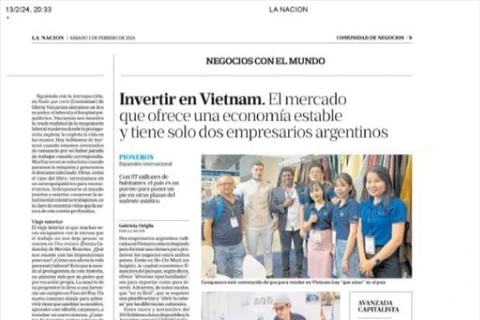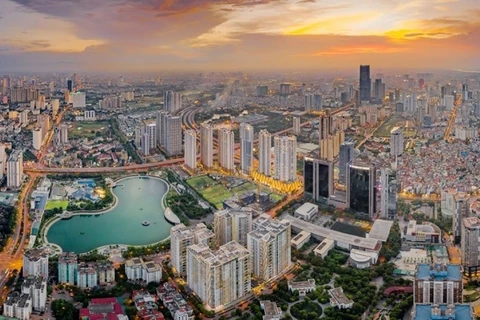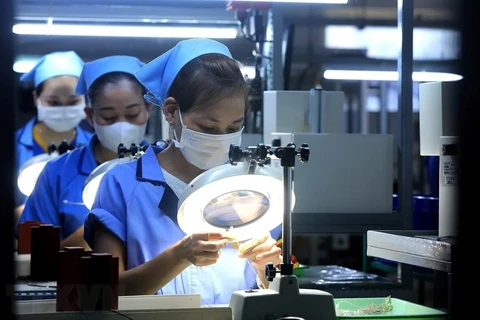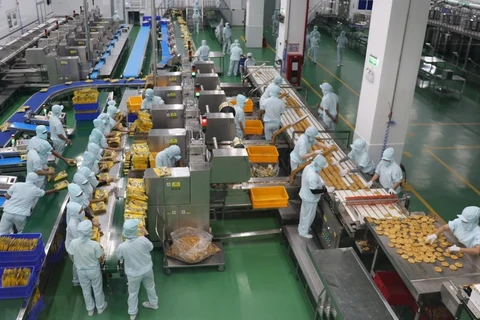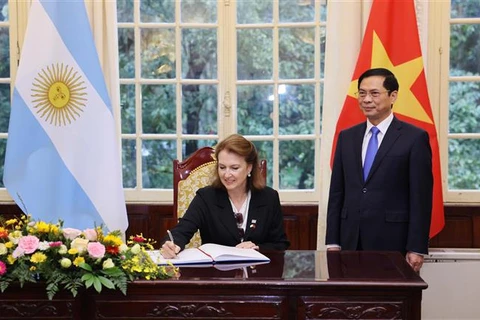 The article by economist Damián Di Pace about the contributions of small and medium-sized enterprises (SMEs) to Vietnam’s economic growth on Infobae. (Photo: Screenshots)
The article by economist Damián Di Pace about the contributions of small and medium-sized enterprises (SMEs) to Vietnam’s economic growth on Infobae. (Photo: Screenshots) Buenos Aires (VNA) - Infobae, a renowned newspaper in Argentina, has recently published an article by economist Damián Di Pace about the contributions of small and medium-sized enterprises (SMEs) to Vietnam’s economic growth after he visited the Southeast Asian country.
According to the article, the Doi Moi (Renewal) process launched by the Communist Party of Vietnam in 1986 has turned Vietnam into a nation with the highest economic growth rate in the world in over 30 years.
The article emphasises that the market economic model under state management has promoted the activities of private companies and enterprises, as well as attracted foreign direct investment. In the 1990-1997 period, Vietnam's economy recorded an annual average growth rate of 8% and 7% in the 1999-2022 period.
In this process, SMEs play a key role, especially in structural transformation which resulted in a shift in labour productivity from a low level to a high level. The Doi Moi process has fueled the growth of SMEs, which today account for 95% of businesses operating in Vietnam and half of the manufacturing workforce and contribute 40% of gross domestic product (GDP).
The author highlighted the State's attention and support policies for SMEs, as well as the role of foreign-invested enterprises in the Vietnamese economy.
In addition, the Vietnamese Government follows an orientation to develop supporting industries, particularly sectors like garments, footwear, electronics, cars, machinery and high technology. It also has financial and tax policies to support domestic SMEs to develop and improve competitiveness.
The article cited forecasts made by consulting firm PwC which said Vietnam, India and Bangladesh will be the three countries with the fastest economic growth rates from now to 2050 in the world, at 5% yearly.
Regarding the relations between Vietnam and Argentina, the article stressed that Vietnam is an important trade partner of the Latin American country. Last year, Vietnam imported about 5.5 million tonnes of agricultural products from Argentina.
The author also noted that Vietnam's socialist-oriented market economy adheres to both principles - focusing on economic growth and always paying attention to social issues. Vietnam has been making efforts to build a good social security and public service system, ensure fairness, narrow the gap between the rich and the poor, and approach hunger eradication and poverty reduction.
He cited a report from the United Nations Development Program (UNDP) which said within ten years from 2012 to 2021, the poverty rate in Vietnam decreased from 18.1% to only 4.4%. Vietnam’s income per capita increased from 96 USD in 1989 to 4,163 USD today, one of the highest increases in the world.
However, the article also mentioned the challenges that Vietnam has to solve in the process of economic development such as a cumbersome state administrative apparatus, bureaucracy, corruption, economic growth’s heavy reliance on foreign-invested enterprises, expensive office rents and lack of highly skilled labourers./.
